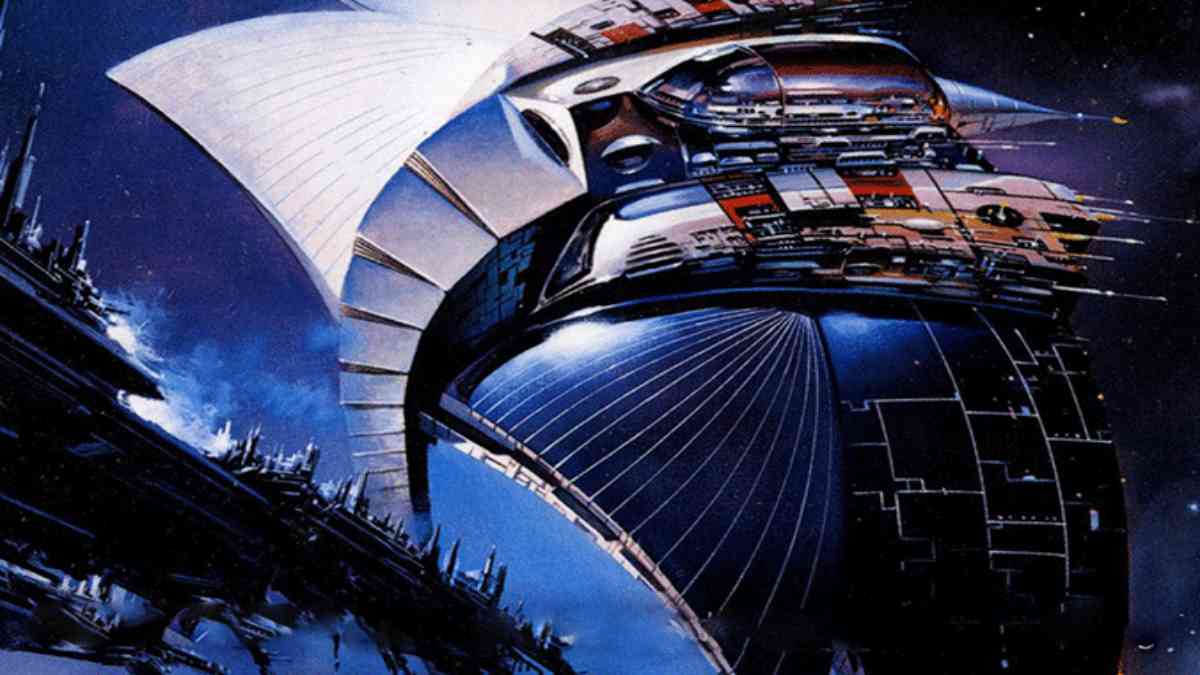Introduction
Fire Upon the Deep is a landmark work in science fiction literature, authored by Vernor Vinge. This analytical review explores the novel’s central themes, narrative structure, and its significance within the sci-fi genre. The question at the heart of this analysis is: What makes Fire Upon the Deep a vital read for sci-fi enthusiasts and how does it stand out in speculative fiction?
As a richly layered space opera, the novel combines grand cosmic ideas with intimate character arcs. This article aims to break down the elements that contribute to its lasting appeal and relevance to modern science fiction readers.
Vernor Vinge and the Genesis of Fire Upon the Deep
Vernor Vinge is widely respected as a pioneer of hard science fiction and speculative storytelling. Published in 1992, Fire Upon the Deep introduced readers to a universe governed by complex rules and ideas, including the innovative concept of “Zones of Thought,” which dictate intelligence and technology limits across the galaxy.
Vinge’s background as a computer scientist enriches his exploration of artificial intelligence and posthuman themes, making Fire Upon the Deep not only a story of adventure but also a thoughtful examination of technology’s potential.
Plot Overview of Fire Upon the Deep
At its core, Fire Upon the Deep follows a fractured galaxy where different regions, or Zones of Thought, impose varying levels of intelligence and technological capabilities. The narrative interweaves multiple storylines, including a desperate quest to stop a cosmic horror known as the Blight and the survival of a human family stranded on a mysterious planet.
This mixture of space exploration, interstellar war, and ancient alien mysteries creates a dynamic plot that captivates readers and sustains tension throughout.
Themes Explored in Fire Upon the Deep
Zones of Thought and Intelligence Hierarchies
One of the most groundbreaking concepts in Fire Upon the Deep is the Zones of Thought. These zones determine how advanced civilizations can be based on their location in the galaxy. This idea raises philosophical questions about intelligence, evolution, and limitations imposed by the universe itself.
Technology and Its Limits
The novel probes deeply into the relationship between technology and sentience. It explores how different species use technology, from simple tools to advanced AI, highlighting both the benefits and dangers of technological progress.
Posthumanism and Alien Perspectives
Vinge expands on posthuman themes, imagining beings that have transcended normal human capacities. The alien species in the novel offer diverse cultural and cognitive viewpoints, enriching the story’s complexity and encouraging readers to reconsider the nature of consciousness.
Good versus Evil on a Cosmic Scale
The conflict between the protagonists and the Blight embodies a classic struggle of good versus evil, amplified to galactic proportions. This theme underscores the stakes and adds emotional weight to the sci-fi elements.
Character Analysis in Fire Upon the Deep
The Human Family
The characters in Fire Upon the Deep are deeply human, grounded in their desires, fears, and relationships. Their struggle for survival provides an emotional anchor amidst the cosmic chaos.
Alien Species
Vinge’s aliens are vividly portrayed with unique languages, cultures, and psychologies. This diversity enriches the narrative and challenges anthropocentric views common in sci-fi.
The Blight
As a terrifying antagonist, the Blight represents uncontrollable technological destruction and a threat to all sentient life, making it a compelling and memorable villain.
Writing Style and Narrative Structure
Vinge’s prose in Fire Upon the Deep is clear and accessible, blending technical descriptions with vivid imagery. The narrative structure shifts between different viewpoints and locations, which maintains reader engagement and builds suspense effectively.
The Impact of Fire Upon the Deep on Science Fiction
Since its release, Fire Upon the Deep has influenced many sci-fi writers and has been praised for its imaginative world-building and intellectual depth. It helped popularize ideas about AI and posthumanism in speculative fiction and remains a benchmark for complex space operas.
Comparisons with Other Sci-Fi Works
Fire Upon the Deep shares similarities with other epic space operas like Frank Herbert’s Dune and Alastair Reynolds’ Revelation Space. However, Vinge’s emphasis on Zones of Thought and layered intelligence hierarchies offers a fresh take that sets it apart.
Why Fire Upon the Deep Remains Relevant Today
With the growing interest in AI, space exploration, and the future of human evolution, Fire Upon the Deep continues to resonate with modern audiences. Its exploration of technological boundaries and cosmic threats aligns well with contemporary scientific and philosophical discussions.
Conclusion
Fire Upon the Deep stands as a monumental achievement in science fiction literature. Vernor Vinge’s imaginative concepts, engaging characters, and compelling themes create a story that is both intellectually stimulating and emotionally satisfying. For sci-fi readers seeking a novel that challenges their perceptions of intelligence, technology, and the universe, this analytical review affirms that Fire Upon the Deep is a must-read.
Frequently Asked Questions (FAQ)
Q1: What is the main idea behind Fire Upon the Deep?
It explores a galaxy divided by Zones of Thought, affecting intelligence and technology, with a plot revolving around stopping a destructive cosmic force.
Q2: Who wrote Fire Upon the Deep?
Vernor Vinge, a noted science fiction author and computer scientist.
Q3: What makes Fire Upon the Deep unique in sci-fi?
Its innovative Zones of Thought concept and rich alien cultures distinguish it from typical space operas.
Q4: Is Fire Upon the Deep part of a series?
Yes, it is followed by a sequel titled A Deepness in the Sky, set in the same universe.
Q5: What themes does Fire Upon the Deep explore?
Technology limits, intelligence evolution, posthumanism, and the classic good versus evil conflict.
Q6: Is the book suitable for new sci-fi readers?
Yes, despite its complexity, Vinge’s clear writing style makes it accessible for readers new to hard sci-fi.
Q7: How has Fire Upon the Deep influenced other sci-fi works?
It inspired discussions on AI, alien intelligence, and advanced civilizations, influencing many contemporary authors.
Q8: What role do alien species play in the story?
They provide diverse cultural perspectives and enrich the narrative complexity.
